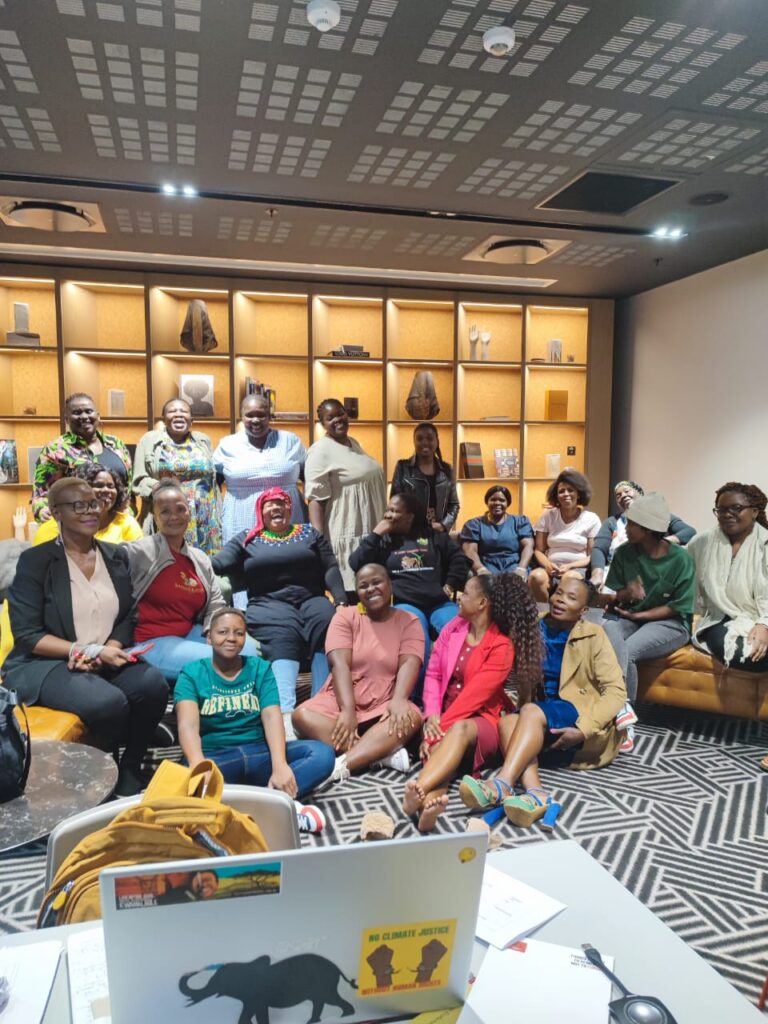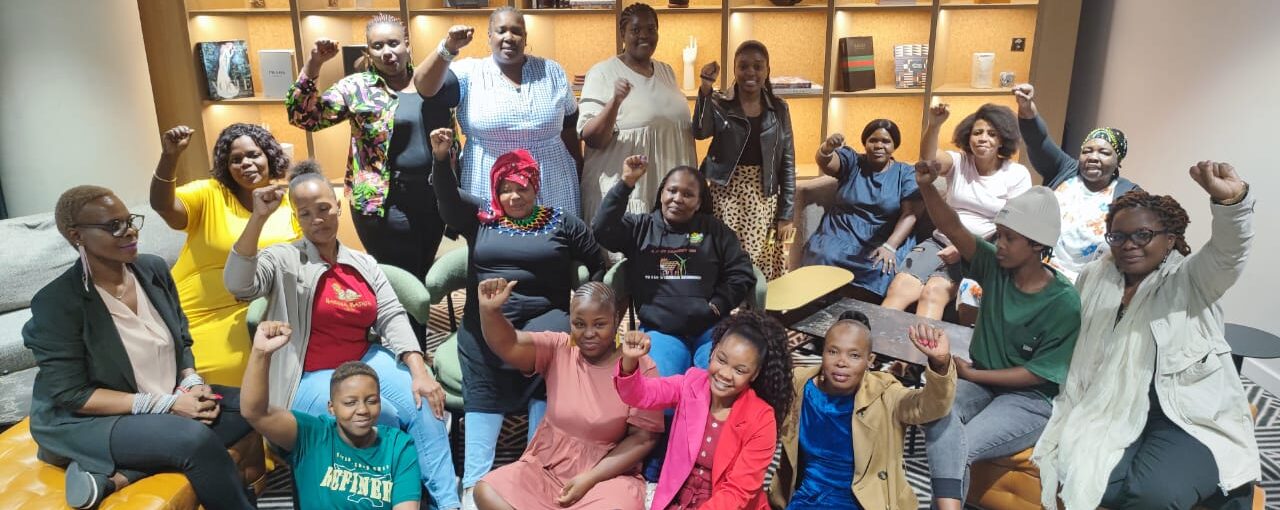On 27, 28 and 29 March 2023, women from Community Based Organizations Gauteng, Limpopo and Eastern Cape regions of South Africa numbering 16 converged in Johannesburg in the first climate justice forum convened collaboratively by Earthlife Africa and FEMNET. The workshop used a story telling model to break down the way the climate crisis affects women, understand the Sharm el Sheikh Implementation plan and speak about the thematic issues of gender, just transition and loss & damage financing through presentations and by telling each other’s climate stories.
From the workshop:
- We acknowledged that the climate crisis has differentiated impacts on different people, disproportionately so for women, girls, indigenous and vulnerable communities, multiplying threats to their multiple intersecting identities.
- We further acknowledged that these impacts must be understood within context, and that they require different remedial measures.
- We identified climate and conflict, and climate-induced migration as emerging issues that must be addressed.
- We recognized that traditional solutions and psychological adaptation mechanisms are some of the ways that women are adapting to the crisis.
Following the Johannesburg workshop, we came up with a set of demands that we would build on as we approach COP 28, and an action plan for this. As part of this process, we agreed that:
- The language used in developing Nationally Determined Contributions, National Adaptation Plans and Adaptation Communications should be clear and simple enough to be understood by all local actors including indigenous populations, women, girls and other vulnerable populations in order for these policies to be accessible to them. Additionally, the language should not placate those responsible for the crisis but should be mimic lived realities as they are.
- The UNFCCC constituencies are important for ensuring participation of the civil society, and it is important for them to have additional southern representation, particularly the women and girls of Africa
- There must be common understanding of all proposed climate solutions, and the women and girls of South Africa call out all solutions that are false within the forestry, agriculture and energy sectors. We join the call for rejecting climate insurance as all climate finance to address adaptation and loss and damage should be grants based. We also must ensure that we protect indigenous communities, their local solutions
- Narratives on loss and damage should be understood within context – and the aspect of intersectionality must guide this framing
- Food security is an important aspect for women with multiple co-benefits, and we want to achieve it through food sovereignty, where finance is provided so women and communities can save, share and preserve indigenous seeds and food systems
- The Just Energy Transition Investment Plans must involve women from development of energy infrastructure including projects, policies and laws. Additionally, energy access should be prioritized for women and girls of Africa, more-so for women-owned businesses.
- Decentralized renewable energy that is socially owned and managed is a good option to enhance energy access especially for those who are off grid, as it is non-polluting, and women should be part of the value chain to produce this.
We therefore demand for:
A. Finance for Loss and Damage
Reparations and Financing:
- Developed states should take historical responsibility for Loss and Damage and there should be reparations for developing countries, particularly those from Africa
- Financing for L&D should be loans and not grant- based
- There should be no red tape in accessing the L&D Fund and the language for accessing it and learning about it should be understandable and free of jargon
Inclusion and Representation
- Women should be part of the decision-making teams or committees that will make decisions on how L&D funds will be accessed at local level
- There should be representation of all stakeholders in the administration of the L&D Fund at local level
3. Beneficiaries of L&D Fund:
- There needs to be transparency on who will benefit from the funds and on the administration of the fund
- There should be a separate distinct budget for gender issues including the intersectional and multiple ways the climate crisis affects women economically and non-economically
- There should be fair compensation for women and men through economic and non-economic funding mechanisms
B. Gender Just Transition
The Gender Agenda:
- · We demand that gender is an agenda every time there is a conference where climate is being discussed
- There is no just transition without gender justice
Representation & Skill building
- More women from communities should be involved in community projects run by governments, communities and even regional and global organizations with 50 – 50 representation
- Women must make up a large percentage of the people skilled for Just Transition
Open Source information & monitoring:
- There is need for information on who represents women from all sectors and there is a need to know the number and representation of women from communities and their inputs, ensuring that there is an understanding of the lived realities
Incentives and Financing:
- There should be incentives for women-led businesses and organizations in the energy, agriculture and other sectors targeted by the just transition
- Women led organizations and businesses should also receive more grants towards actions that propel the just transition
Decentralized Renewable Energy:
- There should be Decentralized Renewable Energy for all, and especially for last mile communities, which will lead to optimal Renewable Energy Use and reduction of use of fossil fuels, for better health, energy and other outcomes for women


